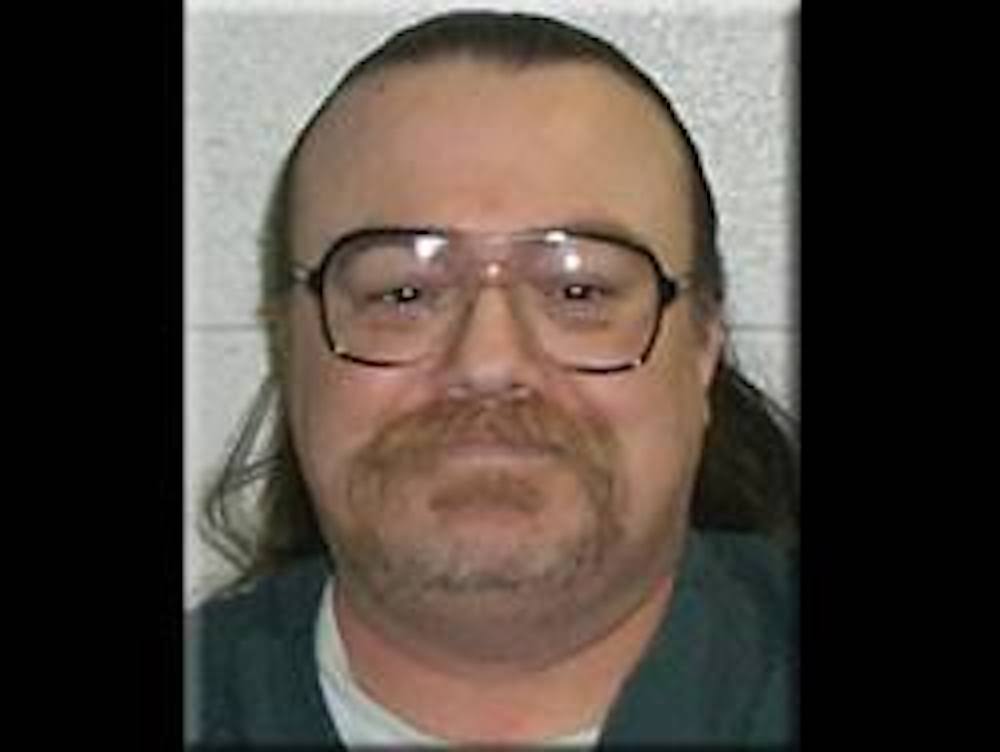Judge says Idaho governor can’t veto clemency for condemned man
Published at | Updated at
BOISE (AP) — A judge says Idaho’s governor doesn’t have the power to veto a clemency recommendation by the state’s parole board for a terminally ill man who was expected to be executed this year.
The ruling from 2nd District Judge Jay Gaskill on Friday says putting Gerald Pizzuto Jr. to death would be illegal and so the court won’t issue a death warrant — a required document before an execution can occur. Gov. Brad Little’s office vowed to appeal.
Pizzuto, 66, has been on death row for more than three decades after being convicted for the July 1985 slayings of two gold prospectors at a cabin north of McCall.
He was scheduled to be executed by lethal injection last year, but after a clemency hearing the Idaho Commission of Pardons and Parole voted 4-3 to recommended that Pizzuto’s sentence be changed to life in prison. The board cited Pizzuto’s poor health — he has terminal bladder cancer, heart disease and diabetes as well as decreased intellectual function — and said commutation would be an act of mercy.
RELATED | Little won’t commute sick death row inmate’s sentence
Little, however, rejected the recommendation and said he wouldn’t commute Pizzuto’s sentence. Little noted the man committed the Idaho slayings shortly after being released from prison in Michigan, where he had been convicted of rape.
Pizzuto’s attorneys with the Federal Defender Services of Idaho went to court, with attorney Jonah Horwitz arguing last month that while Idaho’s Constitution gives the governor the power to grant temporary reprieves from execution, it stops far short of allowing the governor to override the parole board’s commutation recommendation.
Attorneys for the state had argued a phrase added by amendment in 1986 to the relevant section of the constitution, “only as provided by statute,” meant that the Legislature could modify the way commutation and parole powers are carried out.
Deputy Attorney General LaMont Anderson told Gaskill during oral arguments that the Legislature had done exactly that in a state law that said the parole board could recommend commutation, but the governor must approve.
In Friday’s ruling, Gaskill said the final decision on commuting a sentence rests with the parole board and not the governor.
RELATED | Idaho judge weighs if governor has power over commutations
“If the drafters intended to allow the governor to have the power of commutation, which is greater than the power to grant respites and reprieves, the drafters could have specifically stated this,” Gaskill said, pointing out that the constitutions of several other states including Texas, Oklahoma, Arizona and Pennsylvania do explicitly give commutation power to the governor.
The judge also noted that the section of Idaho’s Constitution detailing the parole and commutation powers had been amended a few times throughout the state’s history — most recently in 1986 — but none of the amendments gave full commutation authority to the governor.
“There is no indication that the founders, or the people of the State of Idaho in 1986, intended to give the governor the ultimate decision making authority with respect to whether death sentence should be commuted,” Gaskill said. “This Court is not convinced that the addition of the words ‘only as provided by statute’ intended such result.”
In an emailed statement, the governor’s office said the decision was the ruling of “one judge,” and said Little had followed the constitution and state law as written.
RELATED | He killed 2 people in Idaho in 1985. Now he’s asking the state not to execute him.
“Governor Little will challenge this ruling because the state must have the ability to carry out the death penalty as ordered by the court in this case,” the office said. “Pizzuto was convicted of rape, robbery and four brutally gruesome murders. This matter is now left for a higher court to ultimately decide.”
Deborah Czuba, supervising attorney for the Capital Habeas Unit of the Federal Defenders, said they were grateful that the court upheld the parole commission’s “just and merciful decision.”
“As the court recognized, the Idaho Constitution wisely leaves commutation decisions to the Commissioners, who the Governor appoints based on their judgment and expertise in such matters,” Czuba said in a prepared statement. “The people of Idaho have not given the Governor the power to interfere in the commutation process, and as the court found he acted illegally here.”
She said they hope the state will “now do the right thing and finally allow a dying man to pass away of natural causes in prison, rather than continuing to fight for an unnecessary execution through costly litigation at taxpayer expense.”
RELATED | Condemned man’s lawyers say governor can’t veto commutation board
Gaskill’s ruling acknowledged that the case would have additional appeals and likely go back before the Idaho Supreme Court. Still, Gaskill said his court would “err on the side of caution regarding which entity has the ultimate say in whether a sentence of death should be commuted.”
Pizzuto was camping with two other men near McCall when he encountered 58-year-old Berta Herndon and her 37-year-old nephew Del Herndon, who were prospecting in the area.
Prosecutors said Pizzuto, armed with a .22 caliber rifle, went to the Herndon’s cabin, tied their wrists behind their backs and bound their legs to steal their money. He bludgeoned them both, and co-defendant James Rice then shot Del Herndon in the head. Another co-defendant, Bill Odom, helped bury the bodies and all three were accused of robbing the cabin.
Court records show Pizzuto’s childhood was marred by severe and unrelenting abuse by his stepfather and his stepfather’s friends. He is one of eight people on Idaho’s death row.



